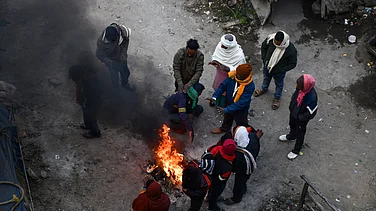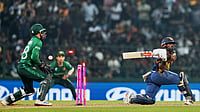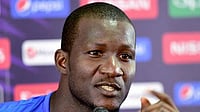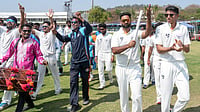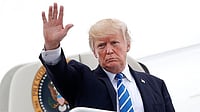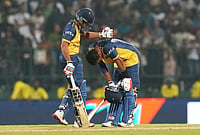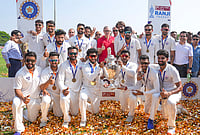Prime Minister Narendra Modi on Thursday held wide-ranging talks with Iranian President Ebrahim Raisi on the margins of the BRICS Summit here during which the two leaders reviewed bilateral ties including in areas of trade & investment, energy, connectivity, counter-terrorism, and Afghanistan.
Modi, who arrived in South Africa on Tuesday on a three-day official visit during which he attended the 15th BRICS summit, met Raisi on a day when BRICS leaders officially endorsed Iran's entry into the bloc - a development described by Tehran as a "historic achievement and a strategic success in Iran's foreign policy."
"Had a wonderful meeting with President Ebrahim Raisi. I am glad that Iran will be joining BRICS. Discussed ways to deepen trade and cultural cooperation between India and Iran," Modi said in a post on platform X.
The prime minister's office said that the two leaders held wide-ranging talks during which they discussed ways to boost ties in sectors like energy, connectivity, and trade.
The two leaders had spoken over the phone on Friday and discussed a range of bilateral issues, including realising the full potential of Chabahar Port.
During the telephone call, they discussed strengthening of bilateral and regional cooperation, including realising the full potential of Chabahar Port.
Ministry of External Affairs (MEA) Spokesperson Arindam Bagchi said the prime minister felicitated Iran on joining the BRICS family.
The leaders of the BRICS (Brazil, Russia, India, China, and South Africa) on Thursday decided to admit Argentina, Egypt, Ethiopia, Iran, Saudi Arabia, and the United Arab Emirates as the new members of the grouping, sealing a long-drawn process.
"President Raisi thanked the PM for India’s support in achieving this outcome. President Raisi also congratulated the PM on the success of the Chandrayaan mission," Bagchi said.
The two leaders reviewed bilateral ties including in areas of trade and investment, energy, connectivity, and counter-terrorism, Bagchi said.
"They agreed to fast-track infrastructure cooperation, including the Chabahar project. They also exchanged views on regional developments, including Afghanistan," he said.
A day earlier, Iran's Foreign Minister H Amirabdollahian had congratulated India "on the flawless Chandrayaan3 mission", saying this achievement resonates around the world.
In May, National Security Advisor Ajit Doval travelled to Tehran on a day-long visit during which he and his Iranian counterpart Ali Shamkhani held wide-ranging talks focusing on the development of Chabahar port, the situation in Afghanistan and bilateral trade-economic engagement.
In the talks, Shamkhani favoured activating the Rupee-Rial mechanism between the two countries for trade, saying it is necessary for advancing shared goals in various economic fields.
The implementation of the Chabahar Port project in Iran is a key focus area in the bilateral ties between New Delhi and Tehran.
Recently, Iranian ambassador Iraj Elahi strongly pitched for faster implementation of the Chabahar port project as well as the use of the facility by India to send various shipments saying the key transit hub will benefit both countries.
Located in the Sistan-Balochistan province on the energy-rich Iran's southern coast, the Chabahar port is being developed by India, Iran, and Afghanistan to boost connectivity and trade ties.
At a connectivity conference in Tashkent in 2021, External Affairs Minister S Jaishankar projected the Chabahar port as a key regional transit hub.
PM Modi Holds Wide-Ranging Talks With Iranian President Raisi
On Thursday, Prime Minister Narendra Modi met with Iranian President Ebrahim Raisi at the BRICS Summit. The two leaders discussed various topics related to their countries' relations, such as trade and investment, energy, connectivity, counter-terrorism, and the situation in Afghanistan.
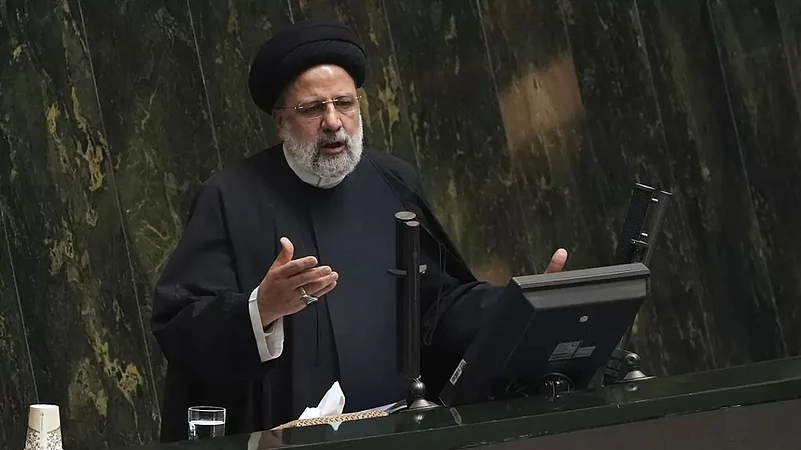
Ebrahim Raisi
Ebrahim Raisi
Published At:
MOST POPULAR
WATCH
MORE FROM THE AUTHOR
×







